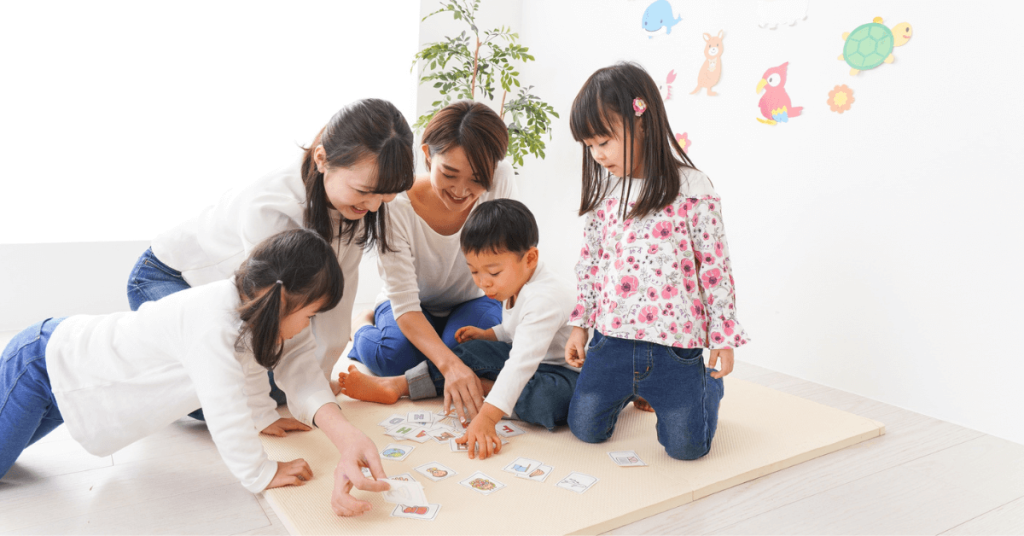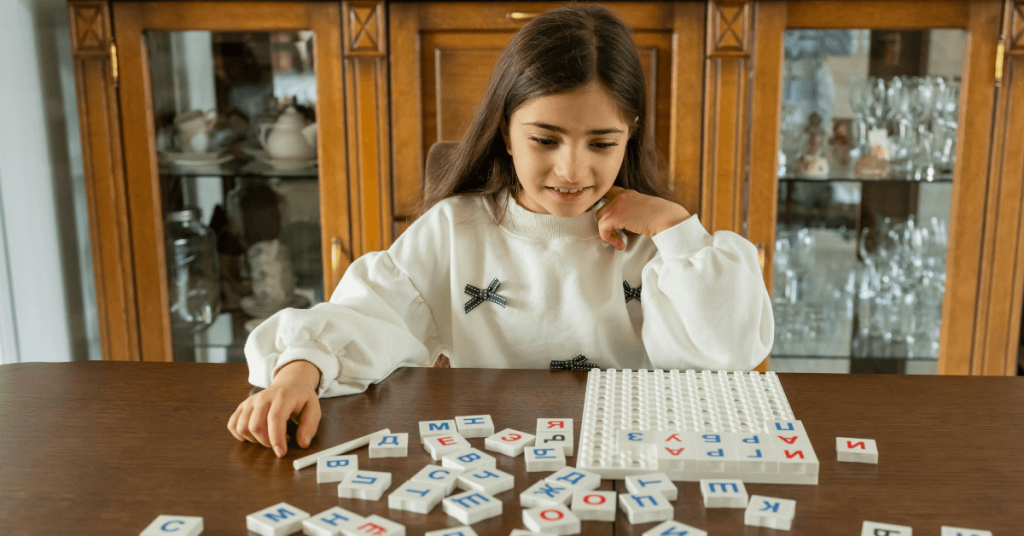Playtime has always been essential, but in 2025 it’s more than just burning energy — it’s a chance to learn, connect, and build the kind of skills kids will carry long after childhood. Think about it: a math app disguised as a dragon-quest game, a puzzle app that feels like a TikTok challenge, or a backyard scavenger hunt that teaches problem-solving. When kids are having fun, they don’t just play — they absorb.
Educational games bridge the gap between entertainment and learning. They take moments that might otherwise be passive screen time or repetitive play and turn them into rich, engaging learning opportunities. And unlike worksheets or drills, they feel natural — part of everyday life, not a chore.
The best part? You don’t need a classroom to make it happen. Educational games fit into car rides, rainy afternoons, after-school hangouts, or even family game nights. The trick is knowing what games work for which ages, how to balance fun with learning, and how to sneak education into moments that already exist.

Educational Games for Playtime: Why They Matter
Play isn’t just downtime. Neurologists call it a “learning accelerator” — the brain processes and retains information better when it’s tied to joy, movement, and curiosity. A Stanford study (2024) found that kids engaged in structured play activities showed a 30% increase in retention of math concepts compared to traditional teaching methods.
Games encourage trial and error in a safe space, helping kids develop resilience, problem-solving skills, and confidence. Beyond academics, they teach real-world skills like collaboration, turn-taking, and communication. A board game around the dinner table can carry just as much value as a coding app — because kids learn best when they don’t even realize they’re learning.

How Educational Games Enhance Children’s Learning
What makes educational games powerful is their ability to transform abstract ideas into something kids can see, touch, or solve. Fractions aren’t numbers on a page — they’re pizza slices to be divided. Vocabulary isn’t a list to memorize — it’s a word-matching race.
Engagement is the secret sauce. A child invested in “beating a level” or “solving the puzzle” is far more likely to retain what they’ve learned. The frustration of trying, the thrill of winning, the laughter of playing together — those emotions cement the lesson in memory.
That’s why math facts learned in a fast-paced app often stick better than the ones copied into a notebook. The game turns “study” into a story kids want to keep playing.

Top Categories of Educational Games for Kids
Educational games aren’t one-size-fits-all. They’re as diverse as the kids who play them. Some spark imagination, others sharpen logic, and some sneak in learning through movement and music. Here are the most popular categories in 2025:
- Memory Games 🧠 — Strengthen focus and recall.
- Math Games ➗ — Turn arithmetic into competition or adventure.
- Storytelling Games 📖 — Build imagination and language fluency.
- Puzzles 🧩 — Enhance spatial reasoning and patience.
- Interactive Apps 📱 — Digital-first experiences blending visuals, sounds, and tasks.
- Team Games 🤝 — Teach collaboration and communication.
- Outdoor Learning Games ⚽ — Link physical play with nature and discovery.
- Creative Games 🎨 — Encourage artistic exploration.
- Music Games 🎶 — Introduce rhythm and pattern recognition.
- Science & Nature Games 🌱 — Inspire curiosity about the environment.
Variety keeps kids engaged and ensures different developmental areas are nurtured. Rotate categories to give your child a full spectrum of learning through play.

Choosing the Right Educational Games for Different Age Groups
Age matters. A toddler won’t learn much from a coding app, but a 10-year-old might thrive with it. The key is matching the game to both ability and interest.
- Toddlers (2–4): Simple matching, color and shape recognition games, interactive toys.
- Early Elementary (5–7): Counting, phonics games, beginner puzzles, basic team play.
- Upper Elementary (8–10): Strategy board games, beginner coding apps, science kits.
- Pre-teens (11–12): Advanced puzzles, multiplayer learning apps, problem-solving challenges.
Games should stretch kids just enough to keep them interested without overwhelming them. Too easy? They get bored. Too hard? They give up. Finding the sweet spot makes learning feel like play.

Interactive Learning: Games that Encourage Problem-Solving
Problem-solving games are like mental gyms. They push kids to think critically, test strategies, and bounce back when they fail. Whether it’s Sudoku for kids, Minecraft Education mode, or escape-room style board games, these challenges teach persistence.
The lesson isn’t just solving the puzzle — it’s learning that mistakes aren’t the end. They’re the process. And resilience is one of the most powerful takeaways of problem-solving play.

Best Online Educational Games for Kids
Online games dominate 2025 playtime, and some platforms have become household staples:
- Khan Academy Kids (free, covers multiple subjects)
- Prodigy Math & English (gamified curriculum)
- ABCmouse (early learners)
- Tynker (coding for kids)
- BrainPOP Games (science and history focus)
The benefit? Learning doesn’t stop at home. Apps track progress, offer adaptive challenges, and make it easy for parents to see growth. The risk? Too much screen time. The best approach is balance — pairing digital play with hands-on games.

Balancing Fun and Education: Finding the Right Games
The best games don’t feel like “learning.” They feel like play first, education second. If a game leans too heavily on the educational side, kids will lose interest. If it’s all fun, the learning gets lost.
Games that hit the sweet spot feel like adventures. A scavenger hunt where kids solve math clues. A digital game where history lessons unlock levels. A board game where creativity scores points.
Fun is the hook. Learning is the bonus.

Building Social Skills Through Educational Games
Play isn’t just about the child — it’s about how they interact with others. Team games, role-playing activities, and cooperative puzzles build communication, empathy, and collaboration.
Sharing turns, negotiating rules, and handling wins and losses all prepare kids for real-life teamwork. In an age where digital interaction dominates, educational games that build face-to-face social skills are more important than ever.

Creative Educational Games for Hands-On Learning
Not every learning game is digital or structured. Some of the best are DIY. Science experiments in the kitchen, LEGO builds with math challenges, or art-based problem-solving games give kids a hands-on way to connect ideas.
These activities teach kids to experiment, imagine, and think beyond the obvious. Creativity becomes the bridge to understanding.

Why Parents Should Incorporate Educational Games into Playtime
Here’s the truth: parents don’t need to be teachers to make learning happen. By joining in on games, you show kids that curiosity is valuable, mistakes are okay, and learning is something we never outgrow.
Playing together also deepens the parent-child bond. Instead of lectures, kids get experiences. Instead of pressure, they get encouragement. Educational games are less about pushing academics and more about creating connection.

Incorporating Educational Games into Everyday Play
Learning doesn’t have to wait for “game time.” Grocery trips become math challenges. Walks in the park turn into nature hunts. Even chores can be turned into mini-competitions.
When education is woven into daily life, kids stop seeing learning as something separate. It becomes a natural part of how they experience the world.

Conclusion: Transforming Playtime into a Fun Learning Experience
Educational games aren’t about replacing fun — they’re about redefining it. Playtime can be laughter, competition, teamwork, and curiosity all at once. With the right balance, parents can give their kids more than entertainment: they give them tools for life.
Because the best kind of play doesn’t just fill the day. It shapes the future.
Discover the power of educational games in playtime. Learn how to choose the right games, balance fun with learning, and make everyday play meaningful.










Leave a Reply